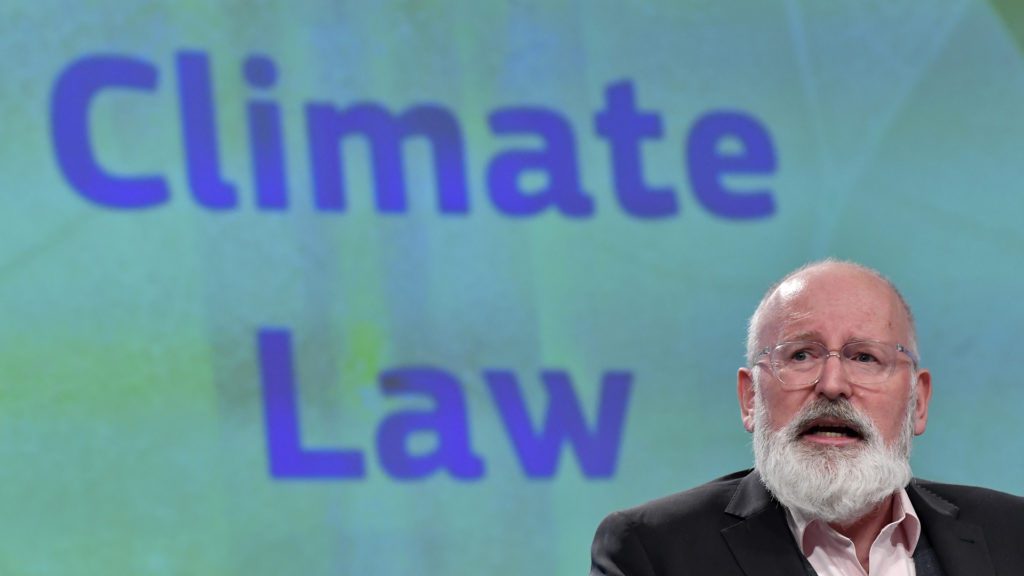EU environment ministers give partial nod to new climate law

EU environment ministers on Friday gave their backing for a proposed new climate law, paving the way for legislation aimed at creating a greener Europe.
Ministers however left it up to government leaders to strike a consensus on the most contentious issue of carbon emissions reductions.
Vote of a new climate law
At a meeting in Luxembourg, a majority of the 27 delegates voted in favour of the new law, which would set out how to achieve a climate-neutral Europe by 2050, including making that target binding.
Negotiations over the legislation can now begin with the European Parliament and the European Commission.
Ahead of the vote, European Commission Vice-President Frans Timmermans urged the ministers to back the law.
>>> READ ALSO – Air pollution costs Europe’s cities 160bn euros a year: analysis
“We’re facing not just a pandemic: we’re facing an industrial revolution of incredible proportions … we’re facing a climate crisis that will not go away. And perhaps it might not be the top priority we have today, but it will be one of the top priorities for the decades to come,” he said.
Pascal Canfin, who chairs the parliament’s environment committee, said that his objective was to obtain a political agreement with the commission and parliament on the law before mid-December.
Ministers held back from a vote on the most contentious proposal to reduce carbon emissions by 55 per cent compared with 1990 levels by 2030.
Voting goal is to reduce carbon emissions to 60%
Parliament wants to increase that target to a 60 per cent reduction compared with 1990 levels.
The issue is highly political, with countries that heavily rely on coal, such as Poland, claiming that the suggested reductions are too high.
EU leaders will attempt to strike an agreement on the matter in December.
Turning to a less controversial topic, ministers also adopted a biodiversity strategy, committing to protect at least 30 per cent of the EU’s land area and 30 per cent of its sea area, a third of which would be “strictly protected.”
>>> READ ALSO – EU countries agree on agricultural reforms, eco-schemes
Protecting biodiversity was essential
European Commissioner for Environment Virginijus Sinkevicius said protecting biodiversity was essential.
“Halting and reversing biodiversity loss is not a choice or a matter of romantic environmentalism, but a social and economic imperative,” he said.
The ministers also adopted minimum standards for drinking water in the bloc.
The amendments will still have to be passed by the European Parliament, but if adopted it will set out hygienic requirements for materials in contact with drinking water and regulate the monitoring of water quality.
German Environment Minister Svenja Schulze, who led the negotiations, said she was pleased with the results.
“Today was a good day for climate protection,” she said.
Source: ednHUB / Deutsche Presse-Agentur